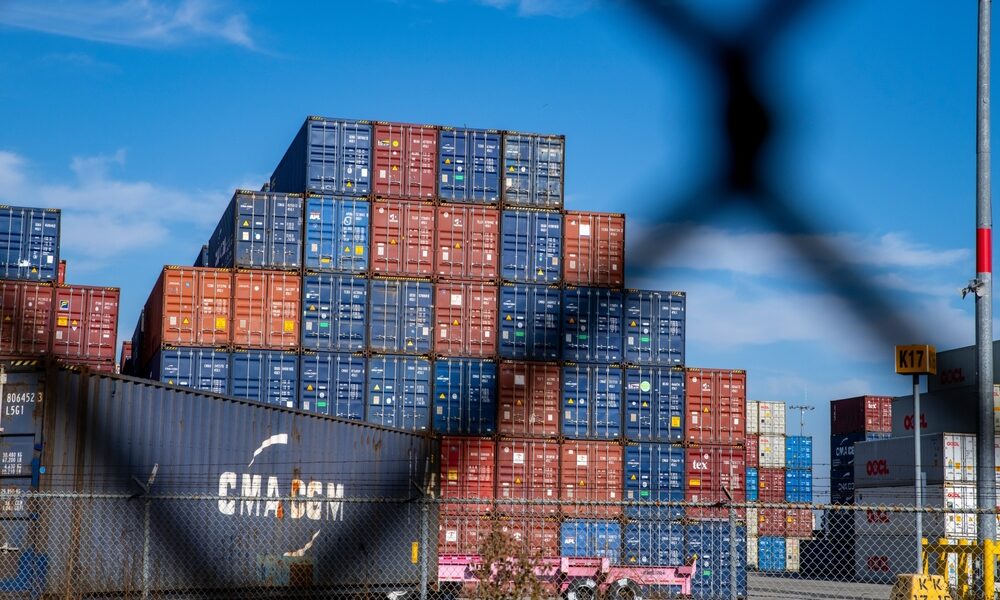While commercial casinos are temporarily halting construction projects due to tariffs imposed by the Trump administration, Indian Country fears the same impacts, but it could fare better than its commercial counterparts, although rural casinos are most at risk, a financial advisor to tribal governments said Wednesday.
The Indian Gaming Association hosted a webinar on “How Trump’s Policies Are Hitting Tribal Casinos.”
With U.S. GDP declining in the first quarter and concerns over a potential recession, the webinar addressed how the business environment is marked by growing uncertainty, with tariffs dominating the conversation. Wynn Resorts announced Tuesday it’s halting the renovation of one of its towers over construction costs and others are doing the same.
From rising food prices to supply-chain disruptions, the effects are being felt across every sector of the U.S. economy, including gaming, said webinar host Victor Rocha, chairman of the Indian Gaming Tradeshow & Convention and webinar host.
“You’re seeing the numbers in Vegas starting to shift and the people getting scared,” Rocha said. “You’re starting to see layoffs.”
Kristi Jackson, chairwoman of TFA Capital Partners, discussed the far-reaching impact of the administration’s trade and tariff policies on both tribal and commercial gaming operations with Rocha and IGA Executive Director Brian Giles. From construction costs to food and beverage procurement, the session explored how new economic pressures are forcing gaming enterprises to rethink their strategies, adjust forecasts, and confront an increasingly volatile marketplace.
Jackson sounded off about the Trump administration’s “reciprocal” tariffs to get other governments to pay up and balance trade more. That created a “massive amount of uncertainty,” with declines in the stock market, before a 90-day pause and carveout of industries allowed the market to recover.
“That kind of uncertainty has caused ripple effects throughout the economy, and the gaming industry has its own stories,” Jackson said.
Rocha said people are dealing with an impulsive persident and a whiplash effect. “The uncertainty is freaking people out, because there’s no rhyme or reason for these shifts.”
Jackson pointed out that half of tribal-casino expenses are labor that aren’t impacted by tariffs. While there’s some impact on food and beverage, the biggest impact is on the capital-expenditure side for any expansion, including furniture coming from overseas and slot machines. “We think if this sticks, there will be a shift in participation games that are leased,” Jackson said. “Naturally, if the cost of the machine is higher, that could be a near-term decision.”
More broadly, the biggest concern is on the revenue side and impact on customers who come into the tribal casinos, Jackson said. Tariffs are a regressive tax that impacts lower-income consumers the most.
“You hear Wynn talk about how they’re not expecting to see that much revenue decline, because they’re dealing with a more affluent crowd,” Jackson said. “Some of the tribal properties in rural areas, however, may not have that same demographic. Tariffs are going to affect disposable income for people at the lower end of the economic sector. The potential impact here for gaming revenues for tribes with a less-affluent customer base is significant.”
Jackson said tribal casinos close to the border, such as in Washington state, New York, Texas, Arizona, and maybe southern California face the greatest impact.
Giles described that the trade show in San Diego was during the week when Trump announced tariffs and members pointed out that most everything on their trade show floor was from China, including the carpet. “It made it harrowing to navigate through all that.”
Fortunately for tribes compared to commercial casinos, most of their revenues are coming from gaming, rather than non-gaming amenities where two thirds of their revenue are going into the operator coffers, Jackson said.
Rocha called the industry resilient and suggested tribes may see alternatives, such as replacing a part rather than an entire machine.
“We’ve seen feasts and famines and everything from an economic downturn to a housing crisis,” Rocha said. “We’ve seen the industry grow to the sky and come crashing back down. We’ve been through this a while, and we can understand bad times don’t last, but need a strategy on how to weather them.”
Jackson said 2009 showed how more resilient tribal properties were compared to Las Vegas. People can drive to a tribal casino once a week versus making a trip to Las Vegas and staying in a hotel.
“It’s very different from Las Vegas, a destination looking for foreign visitors and people taking a vacation,” Jackson said. “It’s materially different. We have a more resilient operation.”
Rocha said tribes learned in 2008 and 2020 during the pandemic that they’re resilient and this time people will still come if they can get a bargain. However, he can’t imagine tribes going forward on construction projects in this climate.
Giles said if consumer prices are going up at stores, tribes will have to compete with dwindling incomes. Layoffs will further exacerbate the problem. “It’s going to be hard to drive a good bargain if your customer base doesn’t have the money or if they’re out of work. The rural will be impacted a lot quicker than the more affluent suburban areas.”
Jackson said that gaming is more recession resistant than other entertainment options, such as theme parks. That didn’t stop her from citing a report from Yale, saying there will be a $3,800 per household decline in disposable income as a result of the tariff implementations.
“That’s a significant amount of money,” Jackson said. “Consumers have a choice on where to spend those disposable dollars. Gaming is more resilient, but we would be naive to say it won’t have any impact when it’s potentially that much.”




